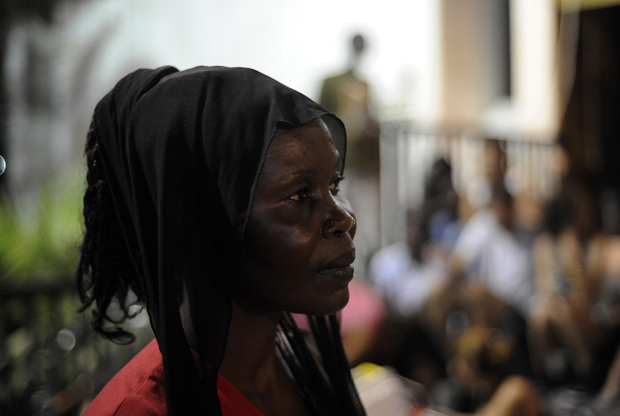
Tripoli (AFP) – Undocumented foreign nationals in Libya are at risk of exploitation, arbitrary detention and beatings that sometimes amount to torture, advocacy group Amnesty International said in a report released Tuesday.
Libya is heavily reliant on migrant labour and it is both a destination and transit point for refugees and asylum seekers from sub-Saharan Africa, lured by better economic opportunities in Libya or the chance of passage to Europe.
Migrants, asylum-seekers and refugees risk being arrested by Libyan militias on the streets, markets, checkpoints and their homes. Some are intercepted while trying to board boats to Europe, Amnesty said.
“It is shameful that Qaddafi-era abuses against foreigners, especially those from sub-Saharan Africa, have not only continued but worsened,” said Hassiba Hadj Sahraoui, deputy Middle East and North Africa director at Amnesty.
During the 42-year reign of slain dictator Moammar Qaddafi foreign nationals faced similar abuses but their plight has only deteriorated in the wake of the 2011 conflict that toppled him, the watchdog said.
“Their situation has worsened amid the general climate of lawlessness, with powerful armed militias continuing to act outside the law,” Amnesty said in the report, which was based on visits to nine detention centres across the country.
It urged the new Libyan authorities to rein in militias and tackle racism and xenophobia, which it said was inflamed by the widespread belief in Libya that “African mercenaries” helped the ousted regime try to crush the 2011 uprising.
“The Libyan authorities must acknowledge the extent of the abuse by militias and put in place measures to protect all foreign nationals from violence and abuse, regardless of their origin or immigration status,” Sahraoui said.
“Individuals entitled to international protection are caught-up in Libya’s mixed-migration flows,” said Amnesty pointing to those fleeing conflict and poverty in countries like Chad, Eritrea, Ethiopia, Somalia and Sudan.
Between May and September 2012, the organisation visited nine detention centres, holding 2,700 foreign nationals, including pregnant women, women with young children and unaccompanied minors, over migration offences.
Amnesty said the detainees reported being tortured and beaten with instruments like wires and rubber hoses. Many showed scars and bruises to corroborate their testimonies.
Women are also subject to punishment for “disruptive behaviour” and are vulnerable to sexual violence in centres overseen by male guards.



